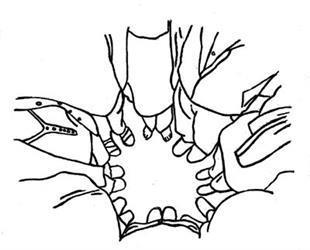Freely released into the cosmos every few days...

J.S.: I thought we could start, Douglas, by talking a little about your early life and what led you to an interest in religion.
D.H.: I would say that what led me to the view that we're going to talk about was not in its early stages consciously religious at all. It was nearer to being scientific or philosophical: a question of facts, not of beliefs. This led in a spiritual direction but its motivation throughout has been primarily concerned not so much with what is good or beautiful as what is true. This seemed to be my instinct, my temperament, and also the particular genius of our Western culture: humility before the evidence, before the facts . . . It’s also necessary to add that my life’s passion and life-work have been investigation into what’s so here, rather than what’s so there: in other words, what it’s like being oneself, what one is at centre — not so much what one looks like to others over there. Reality rather than its many appearances.
J.S.: What led you in this particular direction?
D.H.: I suppose a kind of astonishment and gratitude for having occurred, for having happened at all. It seemed to me that l had to investigate myself for myself because of course people had such wildly different stories about my nature and meaning. Therefore I felt l had to forget what I had been told and start again, to look and see what’s actually given. And presently l did find (it's such an incredibly important and exciting adventure!) that everything I’d been told about myself (more via the structure of language and via ‘common- sense’ assumptions than via direct teaching) by my parents and peers — by everyone — was upside down. In fact, as to what was here, the contrary was true! It’s been the joy of my life to explore this difference between what I’m told I am here and what I find myself to be here.


















